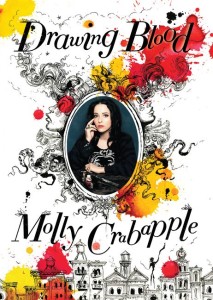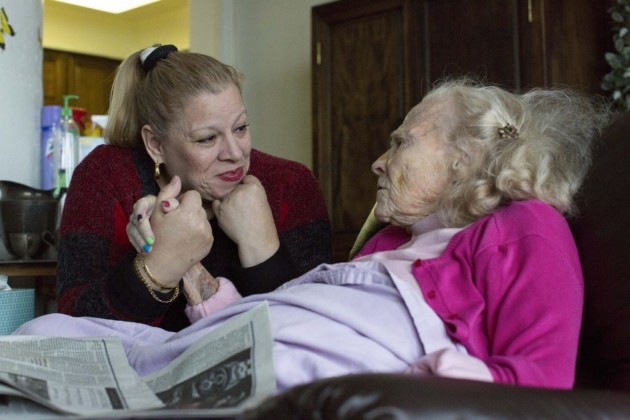Author Archives: Chanel Dubofsky
July 27, 2018 by Chanel Dubofsky
Five Books We’re Loving This Summer
The dog days of summer are here, but there’s still plenty of time to stretch out with a good book. Here is a glimpse of what we’re reading this August — look for part two coming soon!
 Drawing Blood, Molly Crabapple (Harper Collins, 2017)
Drawing Blood, Molly Crabapple (Harper Collins, 2017)
If you’re not familiar with Molly Crabapple, you should remedy that immediately, starting with her memoir. Drawing Blood begins with her childhood in New York City, and follows her as she draws her way through art school, traveling in Europe, Morocco, Marrakech, modeling with Suicide Girls, and witnessing, through illustration, Occupy Wall Street, Syria, on Rikers’ Island, and in Guantanamo Bay (the book opens with Crabapple sketching the trial of 9.11 mastermind Khalid Sheikh Mohammed). Crabapple hasn’t just made a book about becoming an artist, but how art creates a revolution inside oneself, and in the whole world.
- No Comments
July 9, 2018 by Chanel Dubofsky
Four Things Rabbis Should Stop Saying at Weddings
Here we are, in the grip of another Wedding Season. Perhaps you’re a perpetual bridesmaid, or the one getting married, or you’re not particularly into marriage as a life choice for yourself.
Maybe you’re going to a wedding every weekend until the end of time (or Labor Day). As we descend further into the madness of tulle, plus-ones, and open bars, let’s review some things you’re basically guaranteed to find at Jewish weddings: aggressive dancing (ask me about incurring my stiletto related injury), which usually involves the couple being hoisted into the air on chairs while they pretend not to be afraid of falling, people shouting “Mazel Tov!,” and of course, a rabbi.
- 5 Comments
June 28, 2018 by Chanel Dubofsky
If You’re Scared About “Roe” Today, Welcome to the Struggle
Yesterday’s bombshell news that Justice Anthony Kennedy—a reliable pro-abortion rights vote—is retiring from the Supreme Court means that Roe v. Wade is truly, seriously imperiled. We could wake up within a few years to find abortion fully illegal in over 20 states.
Ironically, in recent months, right up until the Kennedy-related outpouring of fear we’re seeing at this very moment began, abortion rights advocates had noticed a growing fatigue around the issue. Buzzfeed published an opinion piece by John Paul Rollert called Trump’s Power Isn’t Fear. It’s Fatigue. The relentlessness of this administration’s violence, its undoing of and disregard for human rights, and its intolerance and attacks on for science, logic,and journalism have left a lot of us with a sense that exhaustion—you might call it outrage fatigue.
- 2 Comments
May 31, 2018 by Chanel Dubofsky
Do We Need to Be Reading Those “Dirty” Anne Frank Pages?
If, like me, you were in the cult of Anne Frank as a young person, you read her diary, and every other book published about Anne, over and over, and when you were finished, you went looking for more.
For many years “more” meant various scandals and controversies over Anne’s legacy and imaginative works about her. But in May, researchers found two new pages in the diary. Because of its fragile condition, the original diary itself is photographed in order to assess how it’s being impacted by the wear and tear of time (to avoid damage, it’s only taken out of storage every ten years). While handlers were examining the book, the two pages, which had been covered by brown paper, were unearthed.
No one knows how to keep a diary a secret like a teenage girl, which you know if you’ve ever been one. There’s no question that Anne didn’t want anyone to find these pages‑—she covered them up herself, after all. She describes them as “spoiled,” and uses them to list a number of dirty jokes, as well as conversations with imaginary friends, and some discussion about sex education, including mention of her father seeing houses of prostitution while in Paris.
The published version of Anne Frank’s diary that won the world over was revised by Otto Frank, and in editing, he removed not only sections in which Anne referenced her own sexuality, but those that depicted himself and his wife in a less than positive light. These new pages haven’t been sanitized at all. The references to sex in them, Frank van Vree, director of the Netherlands Institute for War Holocaust and Genocide Studies told The Telegraph, make it clear that “Anne, with all her gifts, was above all also an ordinary girl.”
The Franks went into hiding in early July 1942, and Anne’s “spoiled” pages are dated September 18th, 1942. Barely two months into what would ultimately be twenty five months spent behind the bookcase at 263 Prinsengracht in Amsterdam, Anne was learning to cope with the stress of being contained, the charge of maintaining constant silence at the risk of discovery and almost certain death. While the new content portrays a curious young woman interacting with sexuality— her own and that of others, it’s important to remember that they were authored under circumstances that were in no way “normal.”
If you’ve read Anne’s diary, you know that she was both an ordinary and an extraordinary person. If you read the diary as a teenaged girl, you might have understood her fear that it would be discovered, or that she would be separated from it (Otto Frank did threaten to take it away from her at one point), and although we have learned a tremendous amount about her and the world she inhabited, do we really need to be reading these new pages? Should we even know that they exist?
The diary itself was found after the inhabitants, including Anne, were discovered by the SS and taken to the Westerbork labor camp, and later, Auschwitz and Bergen Belsen, where she died. There’s a sturdy argument to be made that it was completely justifiable to publish the abandoned diary, that Anne, the talented writer, would have been more than fine with it, that she was writing not just for herself, but to leave a detailed account of her experience. She revised the book as she wrote it. But these pages? These deliberately hidden pages? It begs the question: do we really need access to everything about this person? These pages, which Anne deemed “dirty” ‑‑what do they teach us, and do we need to learn it?
Maybe it’s the part of me that kept my far less compelling diaries under lock and key (and another lock and another key and under my mattress) because I was so afraid of someone finding them, but I wish those pages had remained private. Because I can’t be the only one wondering—how much more proof do we need that Anne maintained the inner life of an ordinary girl, in spite of the world burning down around her?
- No Comments
November 17, 2017 by Chanel Dubofsky
How Tel Aviv’s New Bloody Hour Can Destigmatize Periods

Who do you talk to about your period? When I asked people this question, the answers included everything from other people who get their periods, their partner, their doctor, and of course, “No one.” One person told me she talks about her period with everyone, except cis men she doesn’t know. Another woman said she talks about it explicitly with cis men, because of the discomfort, rooted in misogyny, it causes, and that she’ll continue to do so until that discomfort is a thing of the past.
Would you tell a bartender that you had your period? At Anna LouLou, a bar and cultural center in the Jaffa neighborhood of Tel Aviv, you can get 25% off your bill during Bloody Hour, because typically, one bleeds for 25% of a month. Bloody Hour happens on Mondays, Tuesdays, Wednesdays and Saturdays, and the discount applies to the entire bar, all night. In order to get the discount, though, you have to report that you’re on your period (or whatever language you use to describe it).
- 1 Comment
November 15, 2017 by Chanel Dubofsky
The Leftist Guide to Fighting Antisemitism That You’ve Been Waiting For

Jews for Racial and Economic Justice (JFREJ) today released a primer for activists on the Left about antisemitism. The 44-page document tackles the existence of antisemitism among both Jews and non-Jews on the Left and the uniqueness of Jewish oppression and its history—plus our current moment when antisemitism is again gaining momentum, and Jewish communities and their allies are reacting and defending.
The primer “is unique in how it addresses the ways in which antisemitism has been used to break apart movements for liberation,” says Julia Salazar of JFREJ. “Our paper highlights how antisemitism is deeply connected to capitalism and white supremacy. And while explaining the ties between these oppressive systems, the paper is also a valuable resource on who Jews actually are, in terms of racial diversity and range of class experiences. This challenges many of the myths and false stereotypes about Jewishness that fuel antisemitic ideology.”
- 2 Comments
November 7, 2017 by Chanel Dubofsky
We Need To Talk About Sexual Harassment in Tip-Based Jobs
 When H was 23, she worked as a server at a restaurant known for its brunch menu. One morning, she told me, she was in the kitchen making coffee with another employee who was prepping eggs. “He was maybe—ten feet away from me,” she said. H asked him how his weekend had gone, and in response, “he crossed the room, kissed me, and then went back to his spot and answered my question.”
When H was 23, she worked as a server at a restaurant known for its brunch menu. One morning, she told me, she was in the kitchen making coffee with another employee who was prepping eggs. “He was maybe—ten feet away from me,” she said. H asked him how his weekend had gone, and in response, “he crossed the room, kissed me, and then went back to his spot and answered my question.”
She mentioned the incident to a male server, who dismissed it, but later, the man who kissed her was fired, after harassing and assaulting other female members of the staff. “It didn’t occur to me to mention it to anyone higher up,” H said. “I thought it was the kind of thing you just have to deal with.”
If you’ve ever worked in food service, like a restaurant or a coffee shop, you know that much of your time and energy are spent trying to get good tips, which, if you’re a server, make up the bulk of your take-home pay. People eating in restaurants might not know this, but the U.S. federal minimum wage for tipped employees is $2.13 an hour. “You’re not making anything if you’re not getting tips, said H. “So if you’re going to do something that jeopardizes your tip, it had better be worth it.”
- No Comments
September 18, 2017 by Chanel Dubofsky
Don’t Miss This “Quietly Devastating” Film on Home Health Care Workers
 Here are two things to know about Deirdre Fishel’s film, Care (which you can watch here for the time being): It is quietly devastating. And it is essential viewing for everyone.
Here are two things to know about Deirdre Fishel’s film, Care (which you can watch here for the time being): It is quietly devastating. And it is essential viewing for everyone.
Care is about the experiences of 4 home health care aides,the folks they take care of, their families, and the realities of the industry. Providers, who are usually women of color, are living at or under the poverty line. The caregivers we meet in the film are skilled practitioners who love their jobs, yet they struggle to ensure that their own families provided for.
- No Comments
May 11, 2017 by Chanel Dubofsky
What a Papaya Has to do with Jewish Feminism
 One of the first pieces I ever wrote for the Lilith blog, in April 2013, was about how to perform a manual vacuum aspiration (MVA) abortion on a papaya. An MVA is one type of early abortion, and a papaya is a realistic model for a uterus. I wanted to write in order to at least begin to break apart some of the stigma around abortion—in this case that it’s dirty, dangerous, and that doctors who perform it aren’t legitimate. As long as the procedure remains a mystery, the stigma continues to be perpetuated.
One of the first pieces I ever wrote for the Lilith blog, in April 2013, was about how to perform a manual vacuum aspiration (MVA) abortion on a papaya. An MVA is one type of early abortion, and a papaya is a realistic model for a uterus. I wanted to write in order to at least begin to break apart some of the stigma around abortion—in this case that it’s dirty, dangerous, and that doctors who perform it aren’t legitimate. As long as the procedure remains a mystery, the stigma continues to be perpetuated.
When I pitched the piece to the blog’s then editor Sonia Isard, she did not ask, “How is this Jewish?” There was no need to sell an angle, to summon a Jewish connection, because there already was one—Jewish people have abortions. That reality was, and is, enough for an article. The importance was understood, there was no need for proof.
I wrote other pieces after that were less explicitly political—about my mother, her early death, and what that death prevented me from knowing about her, and by extension, about myself. Again, there was no questioning or demand to “make this Jewish.” The strength of an identity does its own work—folding in on, pressing, infusing. How fear is inherited, what we forget, what we mistake, what we’re never told—those are experiences that are universal, but are also certainly impacted by my Jewish imprint.
- No Comments
March 24, 2017 by Chanel Dubofsky
NYC Offers Domestic Workers–Documented and Undocumented Alike–An Overview of Rights and Resources
This month, New York City’s Department of Consumer Affairs released a unique document entitled “NYC Cares for Care Workers: An Overview of Rights and Resources.” The document, directed at domestic care workers (home attendants, nannies, housecleaners, etc) in NYC, outlines not only what workers are entitled to, such as minimum wage and paid sick leave, but also connects workers with resources for financial counseling, health insurance, and English classes.
The Paid Care Brochure is the result of the eight year partnership (from 2002-2010) between Domestic Workers United (DWU) and Jews for Racial and Economic Justice (JFREJ), during which the two groups organized domestic workers and their employers, along with members of JFREJ, to pass the Domestic Workers Bill of Rights in both New York City and in the state. In addition to outlining a worker’s right to time off and overtime, the bill has specific protections for workers who experience sexual and/or racial harassment on the job. It was signed in July 2010, and was the first legislation of its kind in the country (Hawaii later passed a Domestic Workers Bill of Rights in 2013). JFREJ and DWU advised the New York Department of Labor in creating the Division of Paid Care, the author of the Paid Care Brochure. “The vast majority of people who employ domestic workers want to do the right thing, so they’re asking what they can do to show that they care about their employees’ safety,” said Rachel McCullough, JFREJ’s Director of Organizing. “This is the document that outlines the protocol for respecting the work that makes all the other work possible—building a caring economy that works for everyone.”
- No Comments
 Please wait...
Please wait...